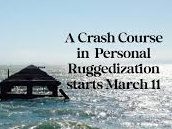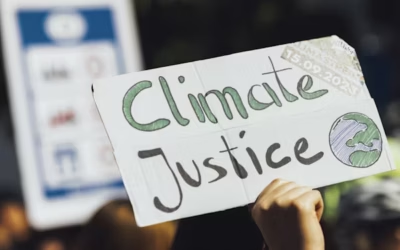by Shady Grove Oliver in AfroLAnews.org…Through her writing, Butler models the concept of having a found family – people one chooses to surround themself with for security and companionship. She demonstrates how small acts of kindness and acceptance can have a ripple effect.
Navigating complexity: Embracing the human pace
by Dark Matter Labs on Medium…Many-to-Many is designed for groups who want to collaborate to solve complex challenges but require new ideas about value, ownership, and power.
Critical responses to global systemic risk in an era of polycrisis
by Ruth Richardson in the International Journal of Disaster Risk Science…As grand challenges intensify and intersect across the globe, policymakers and decision makers at all levels continue to face mounting pressures. Increasing fiscal and financial constraints, cognitive overload, and a persistent lock-in to crisis response modes prevent—or, indeed, derail—the development of long-term policies and actions needed to move toward a safer, more just, and sustainable future.
Big tech and the US digital-military-industrial complex
by Andrea Coveri, et al, in Intereconomics…The link between Big Tech and the military apparatus brings back traditions of economic thought too often forgotten or intentionally removed, such as the twentieth century theories of imperialism and monopoly capital (Hobson, 1902; Baran & Sweezy, 1966). The debate on the military-industrial complex, a concept associated with President Eisenhower’s farewell address in 1961, also regains relevance. However, it seems to have been transformed into a digital-military-industrial complex where the key actor, Big Tech, share the peculiarity of being, at the same time, big market players, controllers of technologies essential to citizens’ lives and indispensable partners of the military apparatus. This makes the integration of state and private capital even closer and more complex than in the past.
‘All of his guns will do nothing for him’: lefty preppers are taking a different approach to doomsday
by Aaron Gell in The Guardian…Liberals in the US make up about 15% of the prepping scene and their numbers are growing. Their fears differ from their better-known rightwing counterparts – as do their methods.
Chartbook 380 Trump’s futurism: Elon’s rockets and fewer dolls for “baby girl” – Part I.
by Adam Tooze in Chartbook 380…They characterize Trump’s politics as “end times fascism”, a politics which rather than constructively seeking to form a liveable world, wagers against the future and instead “banks on the bunker”, either in the form of personal survival (an option for the billionaire elite), planetary exit strategies, or fortress nationalisms.
From polycrisis to metacrisis: a short introduction
by Rufus Pollock and Rosie Bell in Life Itself.org…Our new white paper on the polycrisis and metacrisis: what they are, how they are distinct, how they are related and why it matters.
The planetary politics of everyday life
by Nils Gilman in Small Precautions…In conclusion, the analysis provided by La Fabrique Écologique powerfully argues that the ecological transition in France, and likely elsewhere, is stalled not because the science is unclear or the public unwilling, but because the dominant strategies have ignored the fundamental prerequisites of social justice and economic security.
Casual Loop Diagrams handbook
by Michael Lawrence…Like many other forms of systems diagrams (and network diagrams), CLDs are
composed of elements and connections. But unlike many others, CLDs also include
feedback loops that connect elements in a circular pattern. This handbook explains
each of these three features, provides step-by-step instructions for drawing CLDs,
then presents three examples of CLDs that elucidate crucial real-world phenomena.
“Putting America First” — Undermining health for populations at home and abroad
by Christopher P. Duggan, M.D., M.P.H., et al. in The New England Journal of Medicine…In the initial months of the Trump administration, numerous executive orders have led to a chaotic dismantling of U.S. foreign-assistance and global health efforts. These orders have already had, and will continue to have, severe adverse effects on vulnerable populations globally. But they also have serious implications for people in the United States.




